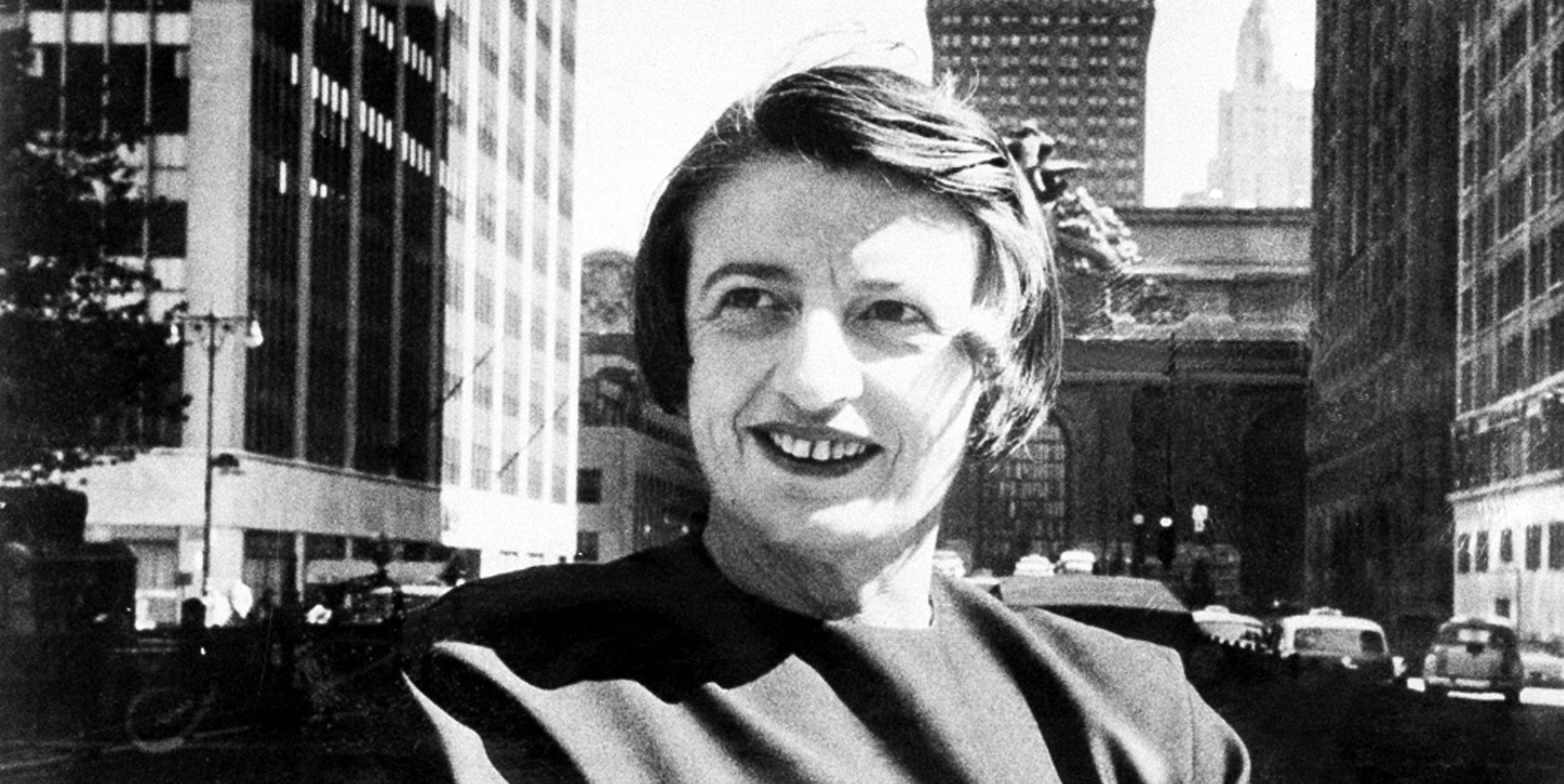Hollywood actress Angelina Jolie and Cantor-slayer David Brat should be pleased as punch today. They’re both big fans of Ayn Rand and it has just been announced that a “lost novel” of Rand’s will be published in July of next year.
Videos by Rare
For Randians, this has the potential to be the literary event of the century. “How often does one get to announce the new publication of a novel by such an influential author eighty years after the book was written?” said Yaron Brook, executive director of the Ayn Rand Institute, in the organization’s pithy June 16 press release.
No, this doesn’t happen very often, especially with an author like Rand whose output of fiction is quite small considering her stature. But then Rand is known more for her philosophy of Objectivism—appealing to some libertarians—than for her literary talent, which is as scant as her output.
Before her death in 1982, Rand published only three novels, a novella, and three plays, all filled with crazy scenarios and preposterous dialogue. Despite this, Rand has managed to remain in print, selling over 30 million books, pretty much since her first novel, “We the Living,” rolled off the presses in 1936.
The new work, “Ideal,” is apparently similar to a play of Rand’s with the same title. In fact, the new novel will be paired with the play and printed in the same edition. This may be an attempt to beef up the book.
Why? Because the new “novel” may not be a novel at all, but a much shorter work. And it may not have been “lost” either, but merely withheld from publication.
According to the ARI press release, the newly discovered Ideal was written the same year as the play, in 1934. Like the novel, the play was never published in Rand’s lifetime.
However, the play did manage to make it into print shortly after Rand’s death. It first appeared in “The Early Ayn Rand: A Selection from Her Unpublished Fiction,” which came out in 1984.
The editor of that collection, Leonard Peikoff, Rand’s heir and literary executor, wrote the introduction to the play. It’s obvious he was aware of the “lost” work then.
“The story was originally written as a novelette and, probably within a year or two, was extensively revised and turned into a stage play,” Peikoff writes.
The sub-title of that collection, “A Selection…”, suggests that the editor withheld some works, and the novelette may have been one such work. In referring to the original “Ideal” as a novelette, Peikoff implies that he knows the length of the work—short, not a full novel—so he probably had it in hand while he wrote the intro to the play.
Maybe Peikoff put “Ideal,” the “novelette,” in a box and forgot about it until now. Perhaps this is what is meant by “lost.”
Since the “novelette” didn’t make into print in Rand’s lifetime and then didn’t even make the grade long after her death, it’s a very good bet that “Ideal,” the novelette, is sub-par in quality. The play certainly is. No one staged it during Rand’s lifetime. When it did finally make the stage in New York in 2010, it was panned.
Ideal, the play, is about a beautiful movie actress who is on the run, wanted for murder. Using addresses on fan mail, she visits six of her most ardent fans, seeking their assistance in evading the cops.
Each of these fans had pledged endless devotion to her in their letters. But when confronted with the desperate star, the fans (all representing various “types”) turn her away for one reason or another. It’s meant, according to Peikoff in his introduction, to demonstrate how most of us are a bunch of hypocrites, never living up to our “ideals” etc.
The only person in the play who lives up to the “ideal,” apparently, is a young man who confesses to the murder—presumably to save the movie star—and then commits suicide. In the end, the movie star is cleared because the murder she was accused of was in fact a suicide. The police knew it all along but blah blah blah business cover-up.
The movie star then claims she will carry on making movies, not for those types who hate her because she makes them realize they are shallow and cannot live up to their ideals, but for those few, those special few, who truly understand… something (this isn’t too clear). Oh, spoiler alert, oops.
Add on to all this the fact that this tale of self-sacrifice is simply dripping with the expectation of altruism, which is in Rand’s philosophy an anathema. You end up with, well, not that much, except a twisted rescue fantasy.
Which is fitting. Because “rescue fantasy,” in the literal, objective sense, might be a good way to describe the “discovery” of this novel.



